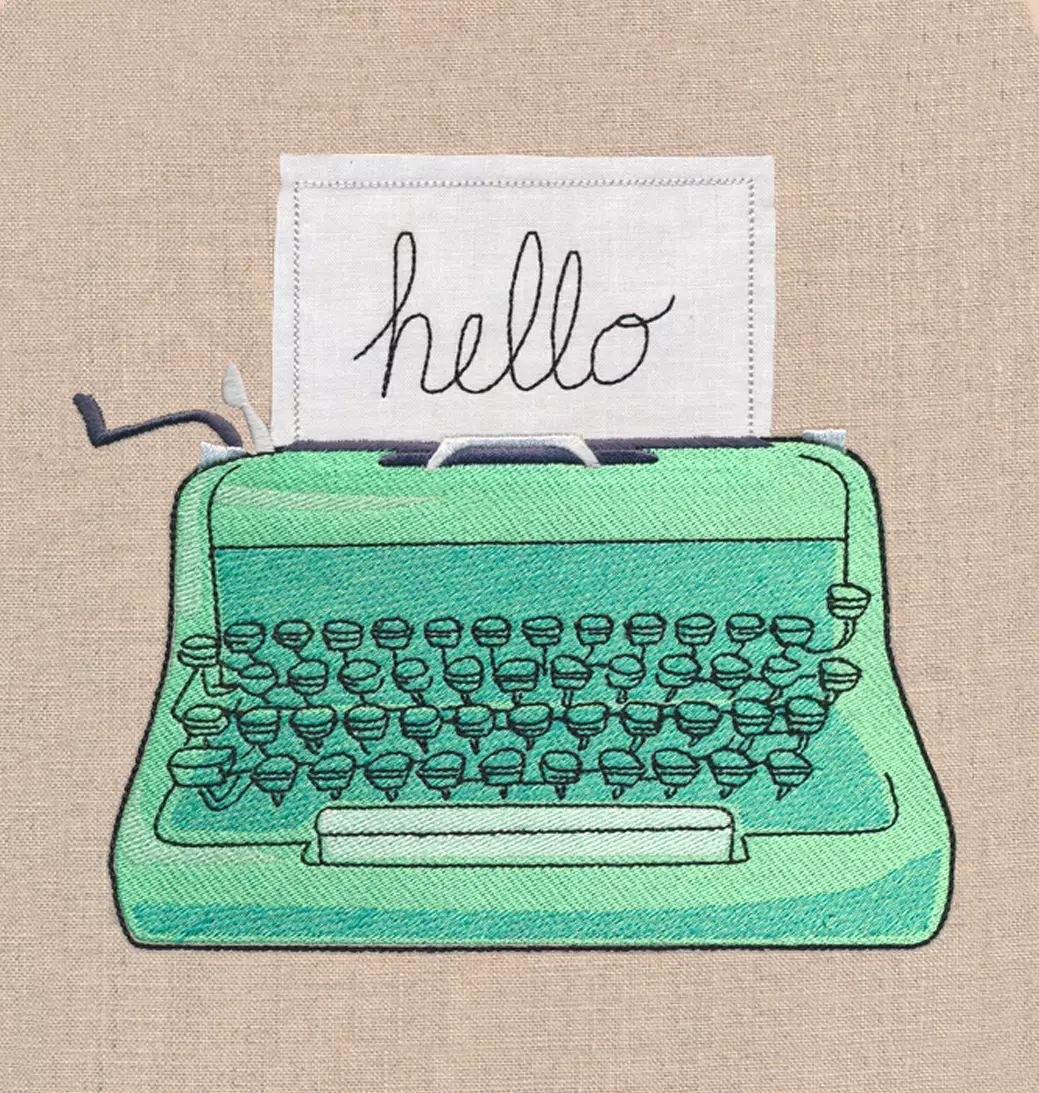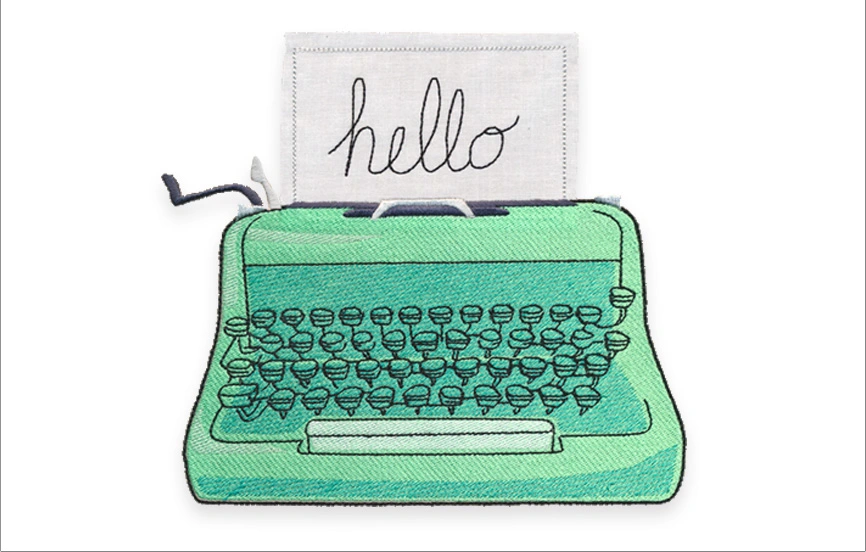If you're a crafty person of any sort, you already know how having the right tools for the job can make everything wonderful. Once you've chosen an embroidery machine, the really big question is settled, but there are still a bunch more items you'll need to make the embroidery magic happen.
Here's a list of must-haves, from our own experience and conversations with Urban Threadsters like you. Stock your sewing studio with these tools and supplies, and you'll be ready for just about any embroidery adventure that comes your way!
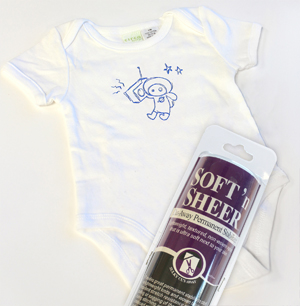
Fabric isn't built to support embroidery all by itself, so you'll need some stabilizer to keep the design from shifting, gapping, or puckering. There are various types available, and different stabilizers suit different fabrics and embroidery designs, so you'll probably have use for many of them at some point:
- A medium weight cutaway stabilizer -- this is what we use most of the time, and it'll provide great stability for designs stitched on fabric. Good quality stabilizers are strong yet soft.
- A sheer mesh cutaway stabilizer such as Sulky Soft 'n' Sheer or Floriani No Show Mesh. Great for stitching light, open designs onto T-shirts and quilters cotton.
- A tearaway stabilizer. Again, most of the time we recommend cutaway for better stability when stitching on fabric, but you'll occasionally find tearaway useful for in-the-hoop designs and such.
- A heavy duty water-soluble stabilizer such as Sulky Ultra Solvy or Badgemaster, for stitching freestanding lace.
- A light water-soluble stabilizer for use as a topping, to keep stitches from disappearing onto fabrics with pile, such as terrycloth.
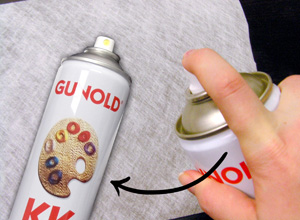
Get some temporary spray adhesive, too. For increased stability, we like to spray the stabilizer with adhesive, smooth it onto the back of the fabric, then hoop both layers taut together. We use Gunold KK100.
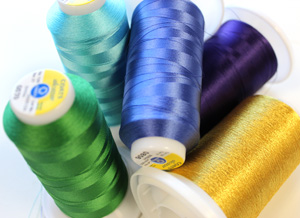
You're going to need some thread, of course! The usual approach is to pick a brand/line and work with the whole range of colors in that line. Quality does vary, and your machine may like some threads better than others, so sample the different kinds of threads available to you before you buy a whole bunch in one line.
Embroidery is typically done in rayon or polyester. Rayon has a reputation for being shinier and prettier, while polyester is said to be stronger and more colorfast. There are lots of specialty threads you can use to embroider, too -- metallic, cotton, variegated, glow-in-the-dark. Have fun experimenting!
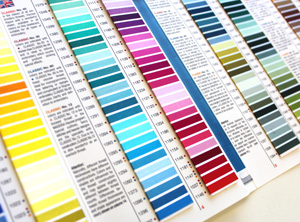
The colors for Urban Threads designs are listed in Madeira 40 wt. Rayon numbers, but we're not pushing any brand in particular, and you're more than welcome to use any colors/threads you like! There are various conversion tools online to translate between different thread brands and find similar colors. If you find yourself frequently translating from one brand to another, you might consider picking up their color cards for a few bucks to make the job easier (for example, here's the card for Madeira Rayon).
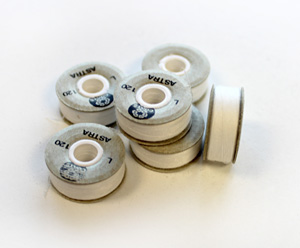
Speaking of thread, you'll need some bobbin thread too. Your machine may be able to take prewound cardboard bobbins -- ask your dealer. If not, you can buy it by the spool and wind bobbins yourself.
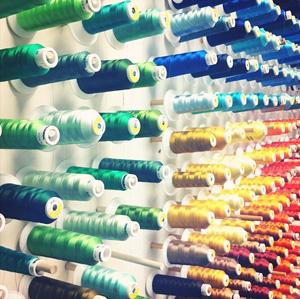
As you may have noticed, there's going to be a lot of thread in your life, so some sort of thread storage system is going to be useful. Perhaps a pegboard on the wall, if you have a dedicated sewing space?
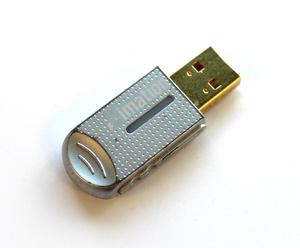
So that you can download embroidery designs online and then transfer them to your machine, make sure to have least one, preferably a couple, of the kind of storage media your machine takes -- USB stick, memory card, occasionally a floppy disk.
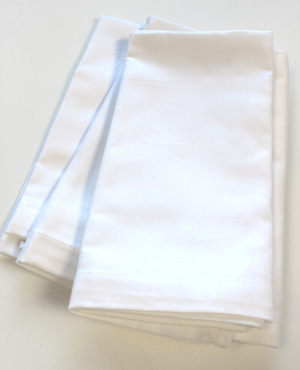
It never hurts to have a stash of blanks to embroider on. Lots of sites sell blank items specifically for embroidery, but plain garments and linens from your favorite shops are fair game, too. Look for sturdy fabrics that will support embroidery well. You never know when you're going to need to stitch up a sweet and/or snarky tea towel for a last minute hostess gift.
Relatedly: Many embroiderers like to keep a stash of items for test-stitching -- a T-shirt, sweatshirt, terrycloth towel, pair of jeans, etc. that you're willing to sacrifice to embroidery experimentation.

